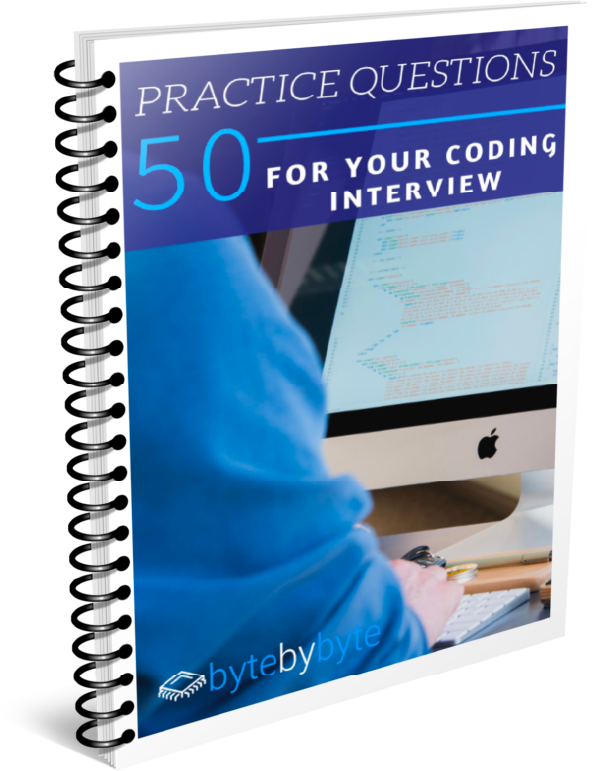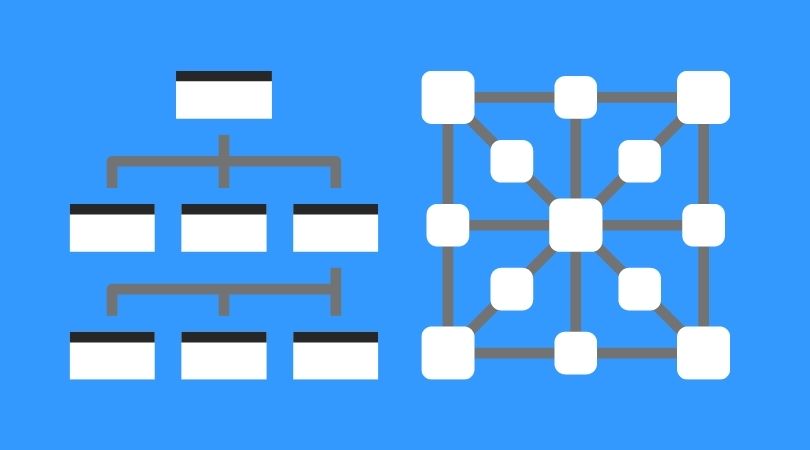
Question
Find the median of two sorted arrays.
eg.
|
1 2 3 4 |
arr1 = [1, 3, 5] arr2 = [2, 4, 6] median(arr1, arr2) = 3.5 |
Once you think that you’ve solved the problem, click below to see the solution.
As always, remember that practicing coding interview questions is as much about how you practice as the question itself. Make sure that you give the question a solid go before skipping to the solution. Ideally if you have time, write out the solution first by hand and then only type it into your computer to verify your work once you've verified it manually. To learn more about how to practice, check out this blog post.
Solution
How was that problem? You can check out the solution in the video below.
Here is the source code for the solution shown in the video:
|
1 2 3 4 5 6 7 8 9 10 11 12 13 14 15 16 17 18 19 20 21 22 23 24 25 26 27 28 29 30 31 32 33 34 35 36 37 38 39 40 41 42 43 44 45 46 47 48 49 50 51 52 53 54 55 56 57 58 59 60 61 62 63 64 65 66 67 68 69 70 71 72 73 74 75 76 77 78 79 80 81 82 83 84 85 86 87 88 |
// Subarray wrapper class private static class Subarray { private int[] underlying; private int start; private int size; // Get a new subarray that is backed by the input array private static Subarray fromArray(int[] arr) { Subarray s = new Subarray(); s.underlying = arr; s.start = 0; s.size = arr.length; return s; } // Return the subarray from i to j, including i and excluding j private Subarray subarray(int i, int j) { if (i > j) throw new IllegalArgumentException(); if (j > this.size) throw new IndexOutOfBoundsException(); Subarray s = new Subarray(); s.underlying = this.underlying; s.start = start + i; s.size = j - i; return s; } // Get the size of the subarray private int getSize() { return size; } // Get the first element of the subarray private int getFirst() { return underlying[start]; } // Get the last element of the subarray private int getLast() { return underlying[start + size - 1]; } // Get the median of the subarray private double getMedian() { // If it is even length, average the middle elements if (size % 2 == 0) return (underlying[start + size / 2 - 1] + underlying[start + size / 2]) / 2.; return underlying[start + size / 2]; } } // Recursively find the median. We remove ~half the items from above and // below the median on each turn, resulting in O(n log n) runtime public static double median(int[] arr1, int[] arr2) { if (arr1.length == 0 || arr1.length != arr2.length) throw new IllegalArgumentException(); return median(Subarray.fromArray(arr1), Subarray.fromArray(arr2)); } // Recursive function private static double median(Subarray arr1, Subarray arr2) { // If each array is length 1, just average the two values if (arr1.getSize() == 1) { return (arr1.getFirst() + arr2.getFirst()) / 2.; } // If each array is length 2, take the larger first value and the // smaller second value and average them to get the median if (arr1.getSize() == 2) { return (Math.max(arr1.getFirst(), arr2.getFirst()) + Math.min(arr1.getLast(), arr2.getLast())) / 2.; } double median1 = arr1.getMedian(); double median2 = arr2.getMedian(); // If both arrays have the same median we've found the overall median if (median1 == median2) return median1; // For the array with the greater median, we take the bottom half of // that array and the top half of the other array if (median1 > median2) { // If the arrays are even length, we want to include the upper/lower // half of the array plus one additional element return median(arr1.subarray(0, arr1.getSize() / 2 + 1), arr2.subarray((arr2.getSize() - 1) / 2, arr2.getSize())); } // Do the opposite of median1 > median2 return median(arr1.subarray((arr1.getSize() - 1) / 2, arr1.getSize()), arr2.subarray(0, arr2.getSize() / 2 + 1)); } |
Did you get the right answer to this coding interview question? Please share your thoughts in the comments below.



